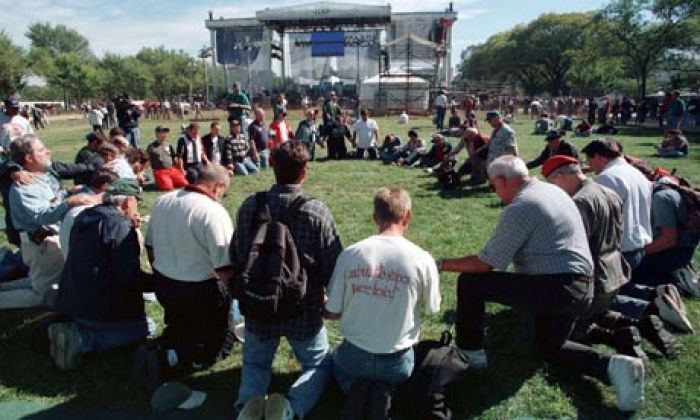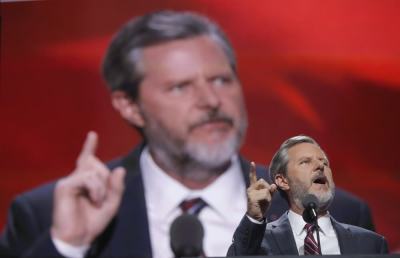Are White Evangelicals Going Extinct Because of Their Rigid Beliefs?

Evangelical Christians are representing a smaller portion of the United States due to their conservative beliefs, according to a recently published piece by a representative of the Public Religion Research Institute.
PRRI Research Director Daniel Cox argued in a piece published last week by fivethirtyeight.com titled "Are White Evangelicals Sacrificing the Future in Search of the Past?" that the socially conservative views of many white evangelicals were causing the demise of their cause.
"For many young people, white evangelical Protestants in the 21st century appear to be advocating a mid-20th century approach to sex, relationships and marriage, even as American society resembles life during this period less and less," wrote Cox.

"This may help explain why the religious profile of young adults today differs so dramatically from older Americans. Only 8 percent of young people identify as white evangelical Protestant, while 26 percent of senior citizens do."
While Cox acknowledged that "it is difficult to draw a direct connection between the numerical decline of white evangelical Protestants and their increasing isolation on sexual morality," he cited PRRI research noting that many leave evangelical churches over their negative views of homosexuality.
"... if white evangelical Protestants want to continue to be a home for younger Americans, they may have to reconsider what parts of Christianity are non-negotiable," concluded Cox.
Tobin Grant, department chair of Political Science at Southern Illinois University, took issue with the claims of Cox through a series of posts on Twitter.
Grant's major objections were twofold, in that he believed Cox's article "conflates of race, ethnicity and religion" and "uses data for ideological argument rather than for analysis."
"'Are White Evangelicals Sacrificing The Future In Search Of The Past?' That's the title of the piece. The answer presented is that America has changed, evangelicals haven't, so they're getting old and will die out if they don't adapt," stated Grant.
"They can't make that claim for mainline Protestants, but the data is the same. White Protestants, born-again or not, are getting older together. And white Catholics are right there with them. Why? Higher [socio-economic status leads to] less kids."
In his series of tweets, Grant also argued that PRRI's findings were colored by its own left-leaning ideological biases.
For example, PRRI founding CEO Robert P. Jones released a book in the summer of 2016 titled The End of White Christian America, with Jones arguing in an August 2016 interview that Donald Trump was going to lose the election because "Mitt Romney's 2012 campaign was the last campaign that could plausibly follow a 'white Christian strategy' to the White House."
"But even if Trump somehow manages to pull off a win by bringing out unprecedented numbers of white Christian voters, the patterns in the electorate are clear," stated Jones in 2016.
"Every four years, there is a shrinking pool of white Christian voters; if current trends continue, 2024 will be the first year white Christians will not make up a majority of voters nationwide."
Regarding Grant's Twitter postings, Ryan P. Burge, a political scientist at Eastern Illinois University, conducted some research and found that Grant was correct in noting the growing racial diversity of evangelicals and that whites in general were getting older.
One way for a religious group to get younger is to have more babies, Burge noted, and white evangelicals have a higher birth rate than white Catholics and white mainline Protestants. Burge added, however, that the evangelical portion of the population has not grown, despite having a higher than average birth rate. Burge suspects that is due to defectors, or a high number of children of evangelicals not becoming evangelical themselves.
Plus, while adding Hispanic and Asian evangelicals to the mix lowers the average age of evangelicals, Burge found the influence to be small because Hispanic and Asian evangelicals are older on average than their race group counterparts.
"... Hispanic and Asian evangelicals are not younger than their racial group in general. That means that while it is true that adding Asian and Hispanic evangelicals to whites would lower the mean age a bit, there is not a wave coming," wrote Burge.
"Yes, there is some hope on the horizon for evangelicals, writ large. Evangelicals of color will make up a larger and larger percentage of the tradition going forward. There will likely still be an airtight relationship between the GOP and white evangelicals, but the importance of that relationship is going to shrink in the national electoral landscape."




























